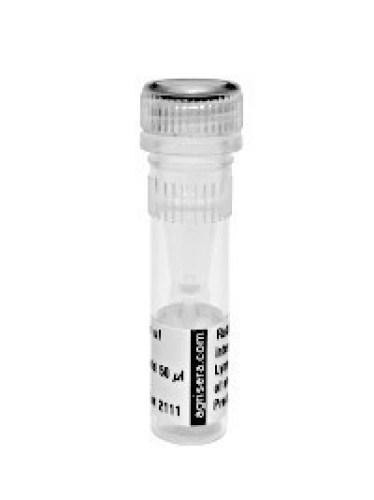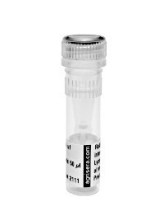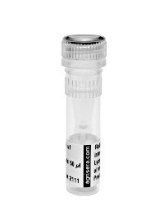
Anti-LYC | Lycopene beta cyclase (chloroplastic)
(Cat#: AS13 2709)


Description
- Immunogen: His-tagged recombinant part of Arabidopsis thaliana lycopene beta-cyclase, encompassing about 2/3 of the coding region of, AEE74875.1,TAIR: AT3G10230
- Host: Rabbit
- Clonality: Polyclonal
- Purity: Serum
- Format: Lyophilized
- Quantity: 50 µl
- Reconstitution: For reconstitution add 50 µl of sterile water
- Storage: Store lyophilized/reconstituted at -20°C; once reconstituted make aliquots to avoid repeated freeze-thaw cycles. Please remember to spin the tubes briefly prior to opening them to avoid any losses that might occur from material adhering to the cap or sides of the tube.
- Tested applications: Western blot (WB)
- Recommended dilutions: 1 : 500-1 : 2000 (WB)
- Expected | apparent MW: 56 | 50 kDa
- Confirmed reactivity: Arabidopsis thaliana, Capsicum annuum, Pisum sativum, Haematococcus pluvialis (green alga), Oryza sativa
- Not reactive in: diatoms
- Lycopene cyclase (EC=5.5.1.19) is an enzyme involved in carotenoid biosynthesis, which catalyzes the double cyclization reaction which converts lycopene to beta-carotene and neurosporene to beta-zeacarotene. Synonymes:
- Tang el al. (2020). OsNSUN2-Mediated 5-Methylcytosine mRNA Modification Enhances Rice Adaptation to High Temperature. Dev Cell. 2020 May 4;53(3):272-286.e7. doi: 10.1016/j.devcel.2020.03.009.Sun et al. (1998). Differential expression of two isopentenyl pyrophosphate isomerases and enhanced carotenoid accumulation in a unicellular chlorophyte. PNAS, Vol. 95, pp. 11482–11488, September 1998.
Boca Scientific is your premiere source for high-quality, innovative solutions for Cell Biology, Molecular Biology, Immunology, genetics and other lab products and reagents. We bring leading-edge products from our own-line and around the world to laboratories in the US and Canada. Our goal is to offer excellent solutions to drive research and discoveries backed by superior customer support.
